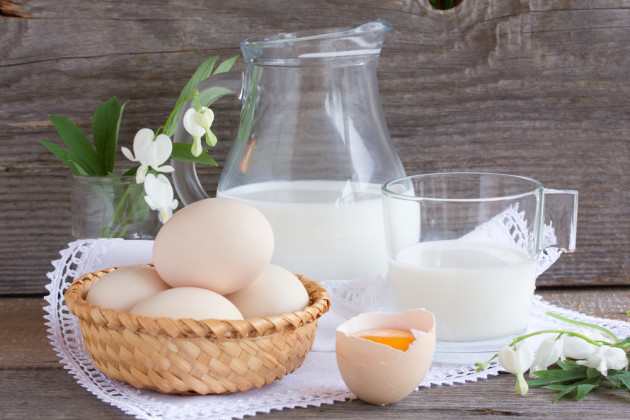Updated at 19.05
EARLY THIS WEEK we brought you the lowdown on macronutrients and how they impact sports performance, but lesser well known (and no less important), are micronutrients.
Here, with the help of Dr. Kevina Cardiff of PureNutrition.ie, we explain three of the most important ones, how they impact your health and in what foods you can get them.
“Micronutrients are nutrients required by the body in very small amounts,” explains Dr. Cardiff.
However, even though the amounts needed are very small they’re essential and the absence of these nutrients in the diet can have severe effects on your performance and your health.
“Some of this is well known, more common sense, but for people who partake in rigorous activity it’s particularly poignant.
“Vitamins and minerals are essential micronutrients so including a wide range of fruit and vegetables and wholegrains in your diet will help ensure you’re getting enough.
“Individuals partaking in regular exercise have higher needs for some micronutrients, such as iron and calcium.
“Iron is required for the transport of oxygen around the body so it’s essential and good sources include lean red meat, chicken, nuts, eggs, raisins and dried apricots, peas, beans and lentils as well as spinach.
Absorb
“Vegetarians should aim to include a source of vitamin C (e.g. tomatoes, peppers, orange juice) with iron-rich foods to help the body absorb the iron from plant sources.”
Calcium has no less significant a role to play.
“Calcium is imperative for bone health as well as most metabolic processes. The role of calcium in metabolism relies heavily on vitamin D so in order to absorb calcium from your food it’s essential to have enough vitamin D in the bloodstream.
“Good sources of calcium include low-fat milk, low-fat yoghurt, calcium-enriched soya milk, cheese – choose low-fat varieties, calcium-enriched fruit juice, tinned fish (with bones), green leafy vegetables, nuts and figs.
“Dietary sources of vitamin D include eggs and oily fish and vitamin D enriched foods.
This article was written with the kind assistance of Dr. Kevina Cardiff, a consultant dietitian at www.purenutrition.ie
